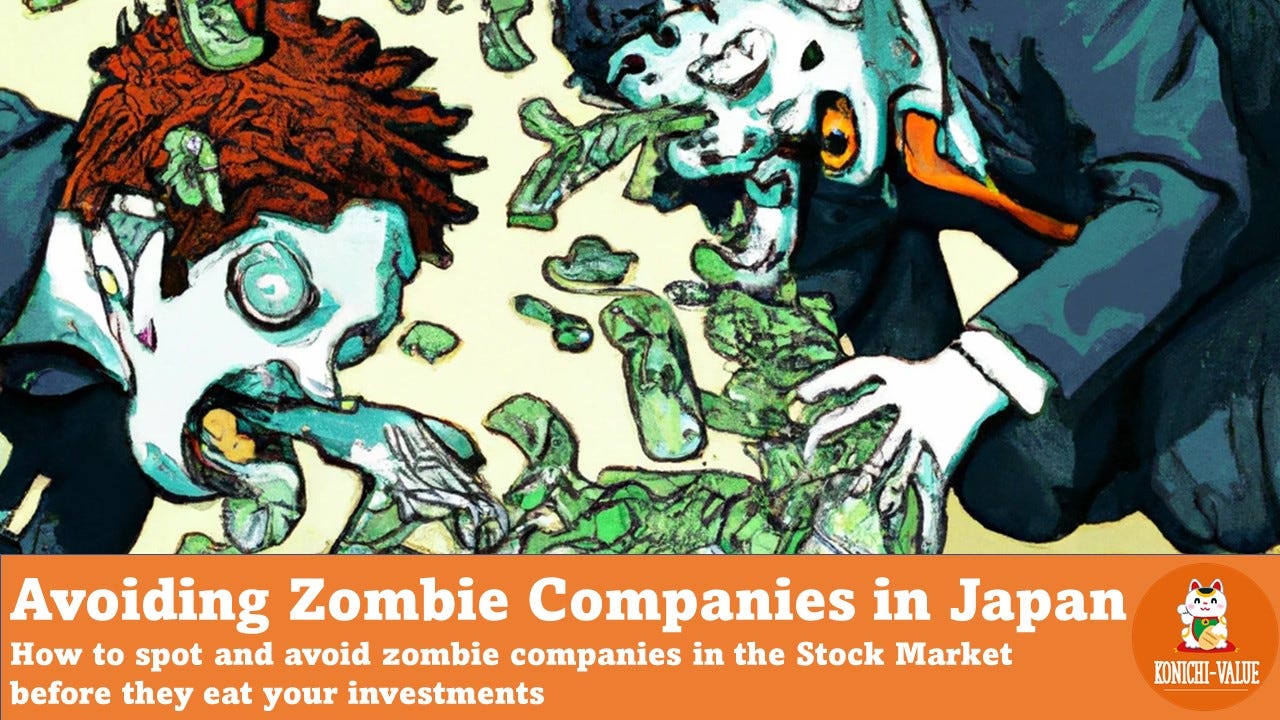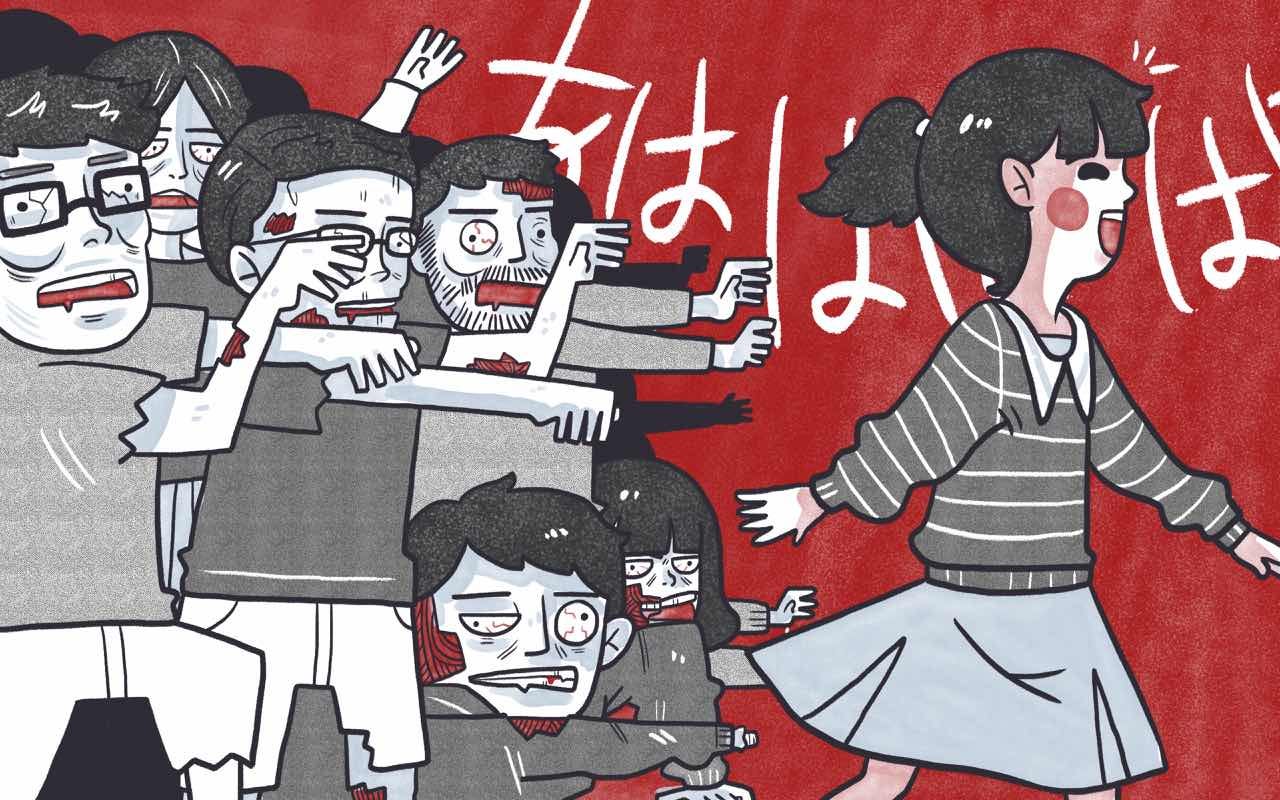Uncovering the Hidden Risks in Japan's Stock Market: How to Avoid the Zombie Companies that will Devour Your Investments
As the sun rises over Tokyo, the hustle and bustle of the city's financial district is already in full swing. But amongst the high-rise buildings and busy streets, there is a growing problem lurking in the shadows. In the Japanese stock market, "Zombie companies" are once again rising from the dead, their financial struggles casting a dark shadow over the country's economy.
These businesses, defined by an interest coverage ratio (ICR) of less than 1 (= they can't pay their loan interests with their profits) for three consecutive years and over 10 years of operation, have reached a staggering 12.9% of all companies in Japan in the FY2021!
With a total of approximately 188,000 "zombie companies" nationwide, more than one in ten businesses in Japan are now considered financially distressed. This trend is alarming investors and policymakers alike, leaving them wondering what the future holds for the once-thriving Japanese economy.
But why are these "zombie companies" so bad for the Japanese economy? As the name suggests, they devour resources, such as credit and labor, away from healthy companies, and they tend to be extremely unproductive and uncompetitive. Zombie companies have to borrow money constantly to stay afloat, which leads to an increase in overall debt and further financial distress. This vicious cycle has a ripple effect on the entire economy, stifling innovation and growth.
The problem of zombie companies in Japan can be traced back to the "Lost Decade" of the 1990s, when a prolonged period of economic stagnation led to a significant number of companies becoming financially distressed. Instead of allowing these struggling firms to go bankrupt and face the backlash of massive unemployment, the government provided them with low-interest loans and other forms of financial assistance in an effort to keep them afloat. This policy, however, ultimately led to the creation of a large number of "zombie companies" that were unable to revive and become profitable.
Read this article about if you want to know more Japan's lost decade:
The Japanese government's misguided efforts to prop up these struggling companies ultimately backfired, creating a drag on the economy and preventing new and innovative businesses from entering the market. It also became a trap for investors; they were unable to distinguish between the good and the bad companies and were more likely to invest in the companies that were already in distress, further feeding the problem…
Zombie Companies are especially prevalent in retail
The situation is particularly dire in certain industries and regions. For example, the retail industry has the highest zombie company rate of 19.5%, and the Tohoku region has the highest rate at 17.8%.
Additionally, companies with 20 or fewer employees are more likely to be zombie companies, meaning that small businesses are disproportionately affected by this trend.
The Pandemic has exacerbated the Zombie outbreak
Japan's stock market is in crisis as data points indicate that the number of zombie companies has soared by 50% during the pandemic. The economic downturn caused by the pandemic has led to a decrease in demand for goods and services, resulting in lower revenues and profits for many companies. A lot of companies were struggling before the pandemic, but now they have reach Zombie territory and will likely never recover.
Additionally, the Japanese government has implemented a number of measures to support struggling companies, such as providing low-interest loans and postponing loan payments. These measures have allowed some companies to continue operating despite their financial struggles, but they have also made it more difficult for the market to identify and address the underlying issues facing these companies.
Investors in the Japanese stock market are warned to be aware of the increasing number of zombie companies, and to take necessary precautions to protect their investments. As the pandemic continues to affect the economy, the number of zombies companies is expected to rise further, making it all the more important for investors to be vigilant.







